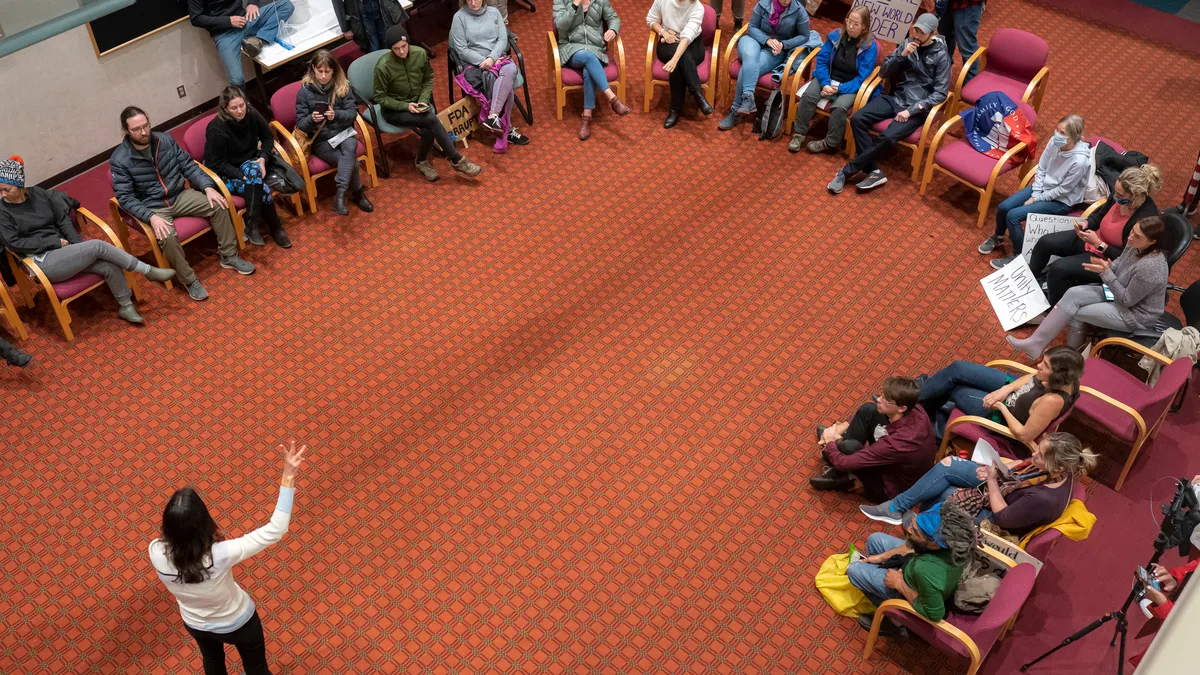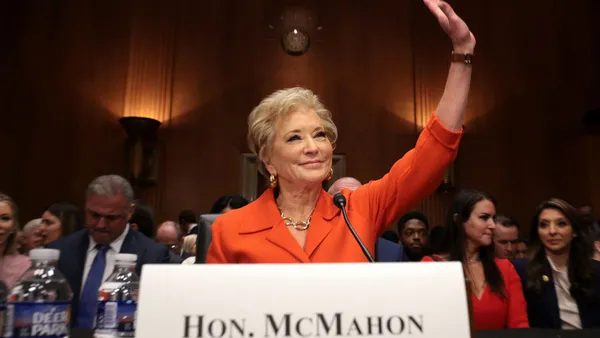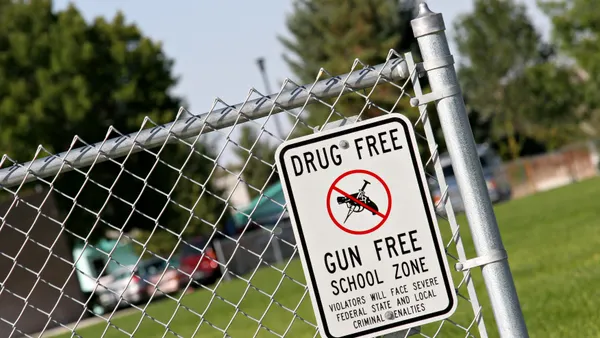Dive Brief:
- Nearly half (48%) of 1,320 surveyed voters in a report released in November by The Hunt Institute said their confidence in public education dropped since the pandemic first struck, with almost as many (47%) saying their confidence had decreased within the past year alone.
- At the same time, 68% of voters and 60% of parents said they did not favor efforts to ban books and censor curriculum. Voters' top concerns with public education were “not teaching real-world skills for the future workforce,” “ensuring public schools are free of guns and other physical violence,” and “students not reading at grade level,” according to the survey.
- The report recommended that districts engage with stakeholders — families, students, teachers and school leaders — when making decisions. The Hunt Institute is an independent nonprofit seeking to improve education policy.
Dive Insight:
The Hunt Institute data aligns with previous findings that the pandemic sparked a downward trend for public trust in the education system.
Between 2019 and 2021, public trust in teachers declined from 63% to 57% among surveyed Americans, according to an Ipsos poll. The declining trust has been attributed to debates surrounding health mitigation protocol in schools at the height of the pandemic as well as ongoing efforts to limit classroom discussions around race and LGBTQ issues.
The Hunt Institute report’s call for increased effort by districts to improve family engagement comes within a month of a recent warning against political narratives advocating for classroom censorship and exclusion under the guise of “parental rights,” issued by the National Association for Family, School, and Community Engagement alongside other organizations.
“The current political narrative which misrepresents family engagement has been brought about by an array of polarizing discussions which have divided the school community — placing families, teachers, administrators, support staff, community organizations and others on conflicting sides,” the groups’ statement said. “This is contrary to what family engagement is. The research is clear, when families, educators and the community are collaborating effectively, kids win.”
Collaborating with other states and districts to find evidence-based solutions and utilizing partnerships with outside organizations are additional tools the Hunt Institute report suggests for navigating the next few years as schools recover from the pandemic. In addition, the report suggested that districts tap into various federal funding streams to “maximize dollars” for recovery, includingt the Infrastructure Investment and Jobs Act of 2021 to help districts expand broadband access in their communities and improve school infrastructure.
Lake Research Partners designed and conducted the Hunt Institute’s online survey of likely voters from August 30 through September 12.









 Dive Awards
Dive Awards





